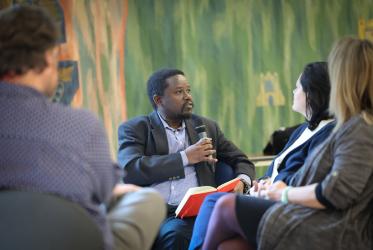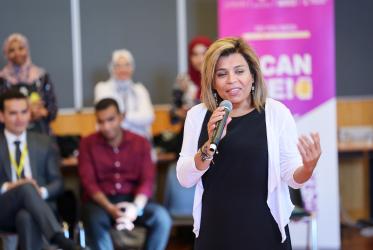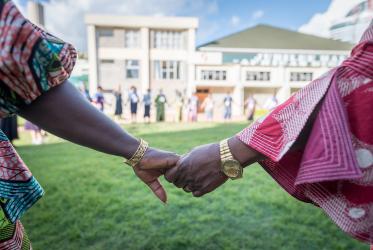Displaying 1 - 20 of 235
Voice of churches vital during UN women’s rights talks
28 March 2024
Um Guia para as Igrejas sobre a Prevenção da Fístula Obstétrica
16 January 2024
WCC webinar explores decolonizing beauty
11 December 2023
Young Black Europeans: “common witness has an open ear”
30 November 2023
A Guide for Churches on the Prevention of Obstetric Fistula
26 October 2023
At peace conference, WCC focuses on overcoming racism
26 October 2023
ACT Alliance general secretary: “equity is not negotiable”
26 September 2023
Celebratory event discusses Black leaders’ contributions to WCC
06 September 2023












